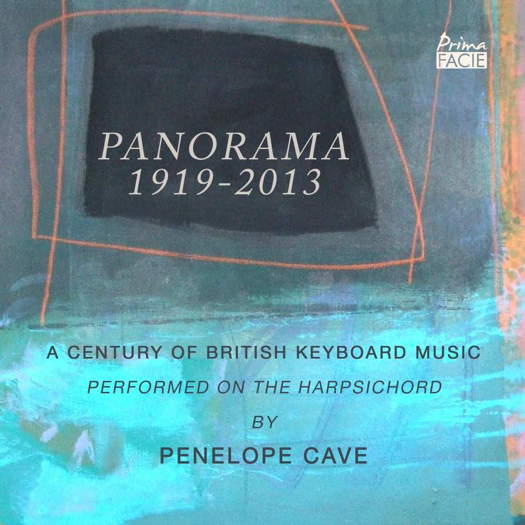 SPONSORED: A Seasoned Champion of New Music. Argentinian-American pianist Mirian Conti in conversation with Andrew Schartmann.
SPONSORED: A Seasoned Champion of New Music. Argentinian-American pianist Mirian Conti in conversation with Andrew Schartmann.
All sponsored features >>
- Prague
- Domenico Carlo Maria Dragonnetti
- Carl Czerny
- Ritter
- Elisabeth Schwarzkopf
- Paraschiv Oprea
- The New Statesman
- Shanghai International Musician Competition
 SPONSORED: CD Spotlight. A Fantastic Collection. Penelope Cave Panorama CD. Little-known harpsichord gems, strongly recommended by Alice McVeigh.
SPONSORED: CD Spotlight. A Fantastic Collection. Penelope Cave Panorama CD. Little-known harpsichord gems, strongly recommended by Alice McVeigh.
All sponsored features >>

Mozart: Posthorn Serenade; Gallimathias Musicum
97309 (Brilliant Classics, CD)
DDD
FIRST RELEASE (1 August 2024)
Playing time: 68'30"
Tracks: 22
Booklet pages: 6
℗ 2024 Brilliant Classics
© 2024 Brilliant Classics
Main country of recording: Czech Republic
Country of manufacture: European Union
Reviewer: Gerald Fenech
Review of Mozart: Posthorn Serenade; Gallimathias Musicum published on 23 July 2024
Czech Chamber Philharmonic Orchestra Pardubice
Vahan Mardirossian, conductor
Wolfgang Amadeus Mozart:
Posthorn Serenade in D, K 320
1 Adagio maestoso - Allegro con spirito
2 Menuetto: Allegretto - Trio
3 Concertante: Andante grazioso
4 Rondeau: Allegro ma non troppo
5 Andantino
6 Menuetto - Trios Nos 1 and 2
7 Finale: Presto
Gallimathias Musicum, K 32
8 Molto allegro
9 Andante
10 Allegro finale
11 Pastorella
12 Allegro - Allegretto
13 Allegro
14 Molto adagio
15 Allegro
16 Largo - Molto allegro
17 Andante - Allegro
18 Menuett
19 Adagio - Presto
20 Fuga
21 Maurerische Trauermusik, K 477, for orchestra
22 Adagio and Fugue in C minor K 546, for string orchestra
A diverse survey of Mozart's 'occasional' music, including his grandest serenade as well as one of his earliest and strangest works, alongside two late and powerful masterpieces. The 'Posthorn' Serenade of Mozart has been recorded on many occasions, but perhaps never with such stimulating and contrasted couplings as this new recording from the Czech Chamber Philharmonic Orchestra Pardubice under their Armenian music director, Vahan Mardirossian. These forces recently made an attractive album of Mozart's 'Lodron' divertimenti; now they turn to the grandest of the serenades which Mozart composed while still in the service of the Prince Archbishop of Salzburg. The Posthorn Serenade dates from 1779, and the harmony of its grand introduction immediately belongs to the richly ambivalent world of mature Mozart. Everything here is calculated to entertain, such as the graceful pairs of minuets, and the extensive 'concertante' movement featuring a cadenza for solo winds, but beyond that there is a uniquely Mozartian pathos which emerges most strongly in the D minor Andantino. Little within Mozart's output could present a stronger contrast than the patchwork of dances and tunes compiled by the ten-year-old composer while convalescing after a serious illness in The Hague. Commissioned for a piece to celebrate the accession of William V as Prince of Orange, he produced this seventeen-movement Gallimathias Musicum. By turn, the album then makes a characteristically Mozartian shift to the grave tread of the Masonic Funeral Music composed in memory of the composer's Masonic brothers in 1785. No less imposing in its way is the Fugue in C minor which Mozart originally wrote for two pianos in December 1783. Rescoring it for strings in June 1788, he added a stern and prefatory Adagio. Known as the Adagio and Fugue K 546, this has been recorded by forces ranging from string quartet to full symphony orchestra; the Czech Chamber Philharmonic Orchestra presents a compelling middle way.
Recorded on 20 April 2023 at Suk Hall of the House of Music, Pardubice, Czechia.

